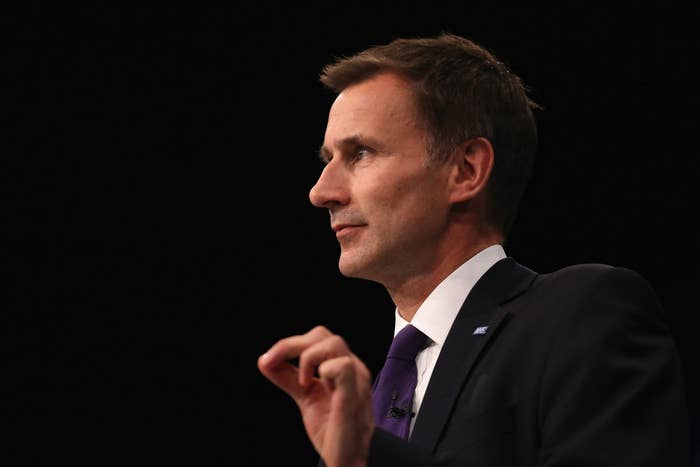
Jeremy Hunt has written to the British Medical Association to outline "cast-iron assurances" in the ongoing negotiations over junior doctors' contracts, in a move to halt proposed strike action.
Hunt sent the letter to the chair of the BMA's junior doctors' committee, Dr Johann Malawana, after the pair met when workshops held by NHS Employers to guide junior doctors through the changes were called off.
In it, Hunt said he shares the same aims for the new contracts as the BMA, and hopes to reach an agreement that "promotes both patient safety and fairness for juniors".
Read @Jeremy_Hunt letter to BMA about junior doctors’ contract setting out assurances http://t.co/jLVkIEuwvy #juniorcontract
The new contracts, proposed by Hunt in July, would mean that the definition of "sociable working hours" for which junior doctors are paid a standard rate would change from 7am-7pm Monday-Friday to 7am-10pm Monday-Saturday. Doctors have said that it removes safeguards that mean hospitals can be penalised for overworking junior doctors. They claim a change in pay reform progression could also have huge implications for those who want to change specialty or take time out, something which would pose particular problems for those wishing to pause their careers to have children.
"I don't see how it can possibly be justifiable to ask hard-working NHS staff to do more and get paid less," Labour's shadow health secretary Heidi Alexander said.
The letter outlines three key points, stating that the new contract is not a cost-cutting exercise, that it must improve patient safety by supporting a seven-day NHS, and that it would reduce, not increase, junior doctors' hours.
Throughout the ongoing negotiations, junior doctors have stressed that changing the "sociable working hours" would mean that they would see a decrease in their pay of up to 30%.
In the letter, however, Hunt says: "Whilst I want to see an end to automatic annual increments (with pay rises instead based on moving through the stages of training and taking on more responsibility), these changes would be cost neutral, rather than cost saving."
#iminworkjeremy we're all here and ready for our second consultant-led ward round of the day!
The proposition of a new "seven-day" NHS has repeatedly caused outrage among doctors who already feel like they're working outside of Monday-Friday hours, something they have expressed on social media at weekends using the hashtag #ImInWorkJeremy. Hunt has now said that "I would be pleased to discuss in
negotiations how far plain time working extends on Saturdays," which could prove key to negotiations and whether proposed strike action goes ahead.
In a response to Hunt's letter issued by the Royal College of Psychiatrists, its president Professor Sir Simon Wessely noted that junior doctors specialising in psychiatry are particularly subject to work outside of standard hours. He hoped that "there will be progress at the negotiating table in agreeing what constitutes anti-social hours, and that the proposed arrangements will not disproportionally affect the salaries of our Psychiatric Trainees."
But while Hunt calls junior doctors the "backbone of medical care in hospitals at weekends and at night" and assures them that "I can give an absolute guarantee to junior doctors that this contract will not impose longer hours", some doctors seem skeptical about the developments.
What's the verdict @TheBMA @johannmalawana, it is false reassurances? Will he agree to come back and negotiate fairly? #juniorcontract
Surgeon Laura Derbyshire asked whether these were "false reassurances".
The editor of the Health Service Journal, Alastair McLellan, called the letter a "much needed intervention", saying that it was "a recognition that the government was losing the media/public battle."
Dr Johann Malawana, BMA junior doctor committee chair, said that it is "encouraging that the health secretary has finally recognised the vital role that junior doctors play as tomorrow's leaders across the NHS.
"However, questions still remain and we are urgently seeking clarification on the points raised in the letter."
